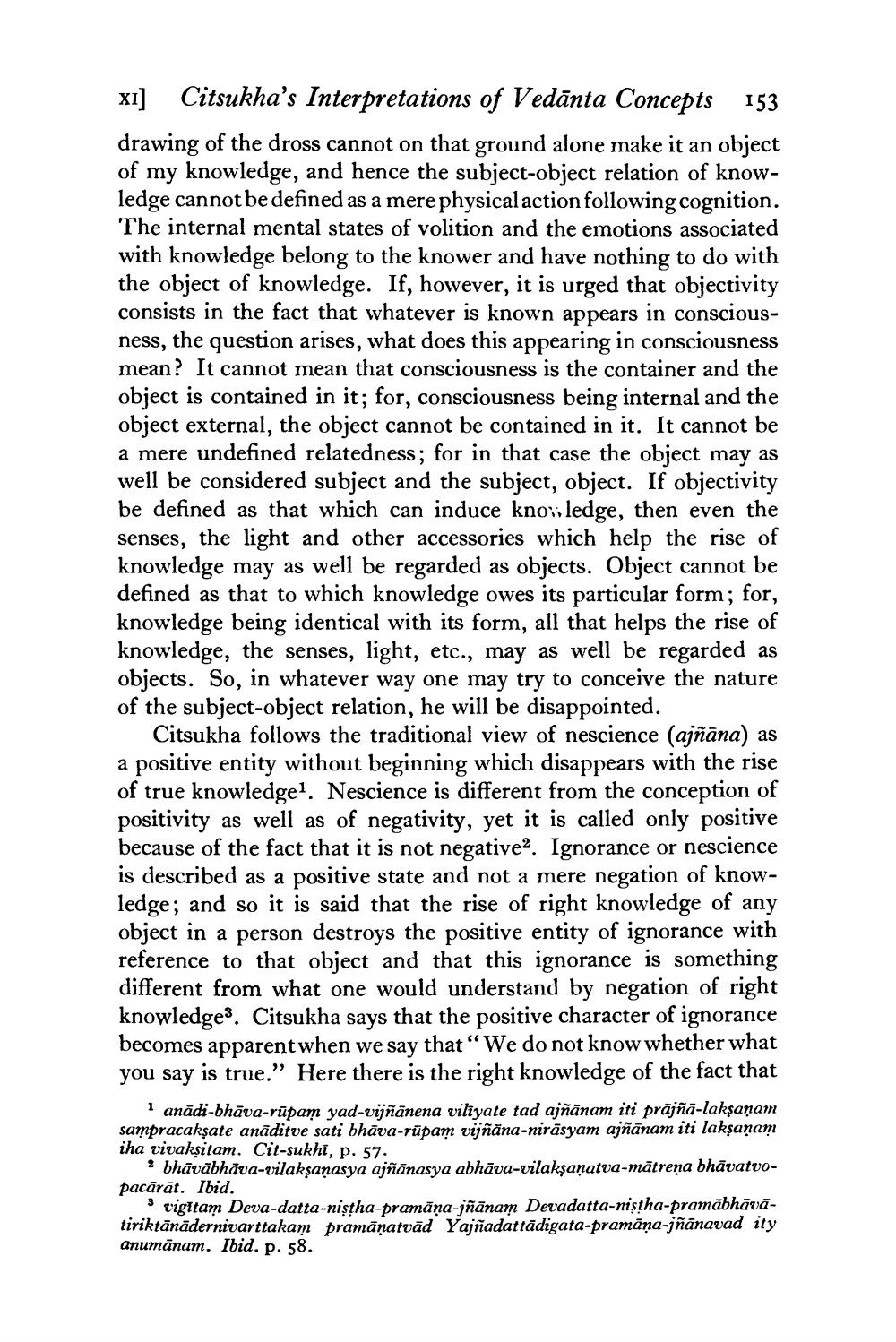________________
x1] Citsukha's Interpretations of Vedānta Concepts 153 drawing of the dross cannot on that ground alone make it an object of my knowledge, and hence the subject-object relation of knowledge cannot be defined as a mere physical action following cognition. The internal mental states of volition and the emotions associated with knowledge belong to the knower and have nothing to do with the object of knowledge. If, however, it is urged that objectivity consists in the fact that whatever is known appears in consciousness, the question arises, what does this appearing in consciousness mean? It cannot mean that consciousness is the container and the object is contained in it; for, consciousness being internal and the object external, the object cannot be contained in it. It cannot be a mere undefined relatedness; for in that case the object may as well be considered subject and the subject, object. If objectivity be defined as that which can induce knoii ledge, then even the senses, the light and other accessories which help the rise of knowledge may as well be regarded as objects. Object cannot be defined as that to which knowledge owes its particular form; for, knowledge being identical with its form, all that helps the rise of knowledge, the senses, light, etc., may as well be regarded as objects. So, in whatever way one may try to conceive the nature of the subject-object relation, he will be disappointed.
Citsukha follows the traditional view of nescience (ajñāna) as a positive entity without beginning which disappears with the rise of true knowledgel. Nescience is different from the conception of positivity as well as of negativity, yet it is called only positive because of the fact that it is not negative. Ignorance or nescience is described as a positive state and not a mere negation of knowledge; and so it is said that the rise of right knowledge of any object in a person destroys the positive entity of ignorance with reference to that object and that this ignorance is something different from what one would understand by negation of right knowledge3. Citsukha says that the positive character of ignorance becomes apparent when we say that “We do not know whether what you say is true.” Here there is the right knowledge of the fact that
anādi-bhāva-rūpam yad-vijñānena viliyate tad ajñānam iti prājñā-lakṣaṇam sampracakşate anāditve sati bhāva-rupam vijñāna-nirāsyam ajñānam iti laksanam iha vivaksitam. Cit-sukhi, p. 57.
? bhāvābhāva-vilaksanasya ajñānasya abhāva-vilaksanatva-mătreņa bhāvatvopacārāt. Ibid.
vigitam Deva-datta-nistha-pramāna-jñānam Devadatta-nistha-pramābhāvātiriktānādernivarttakam pramānatvād Yajñadattādigata-pramāņa-jñānavad ity anumānam. Ibid. p. 58.




